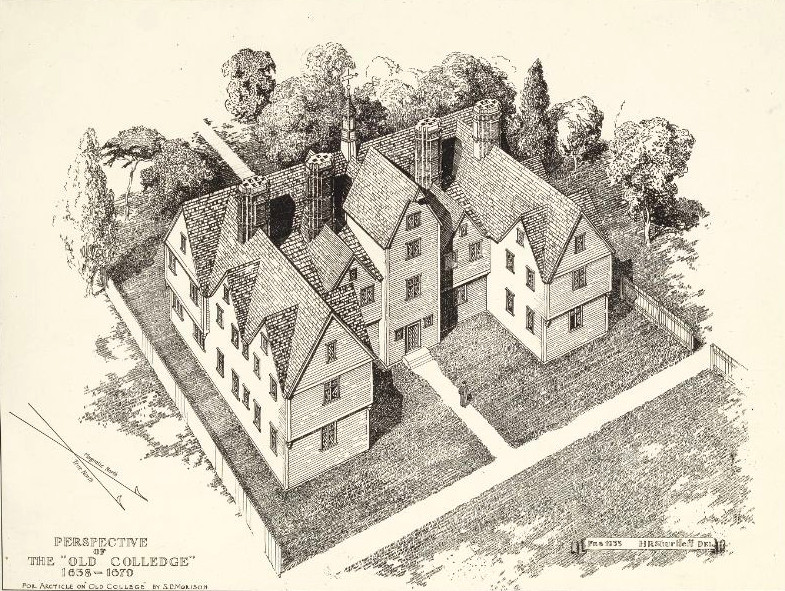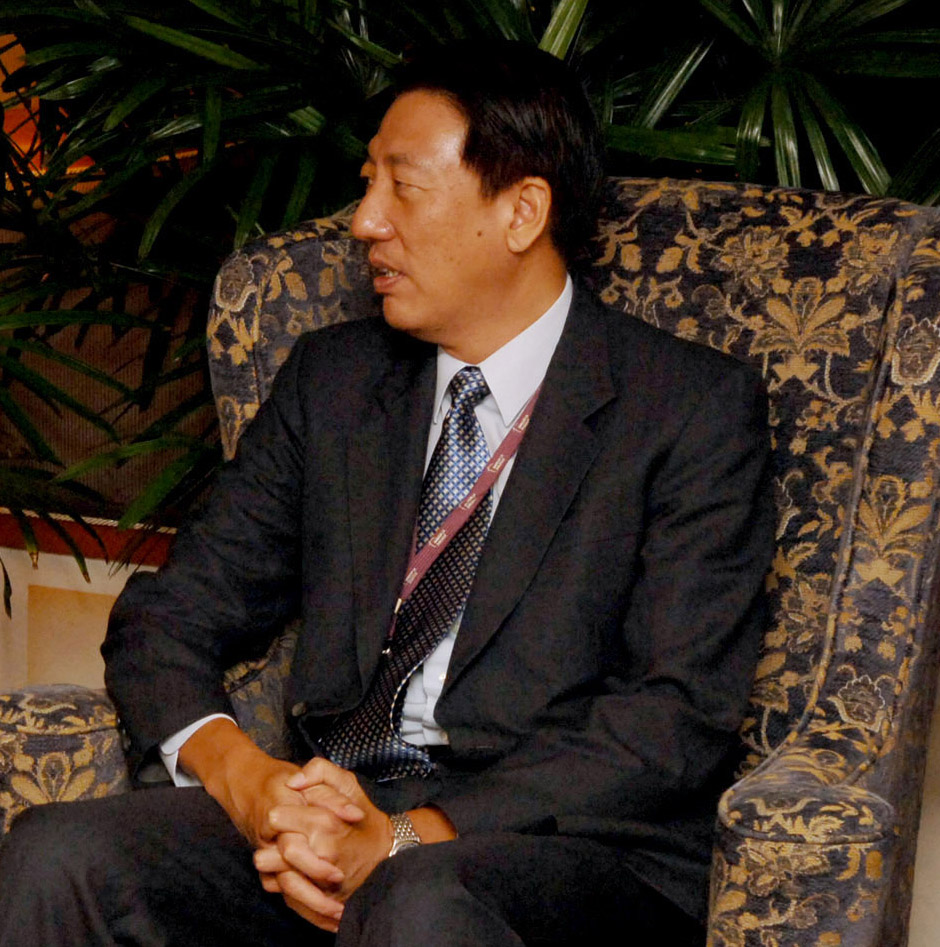|
Chew Kheng Chuan
Chew Kheng Chuan (; born 1957), also known as KC Chew, is a Singaporean fundraiser. The first Singaporean admitted to Harvard College, he is known for pioneering fundraising in Southeast Asia and for his involvement in Operation Spectrum in 1987. From 2000 to 2021, he was Chairman of The Substation, an arts centre in Singapore founded by the playwright Kuo Pao Kun. Early life, education and career Chew enrolled in Anglo-Chinese School (Junior) in 1964, in a batch of students that included Andrew Phang, V.K. Rajah and Tharman Shanmugaratnam. Chew developed an early interest in Singapore politics, and became good friends with Shanmugaratnam in school. In 1978, Chew became the first Singaporean to be admitted to Harvard College. He graduated with an AB ''cum laude'' in Social Studies in 1982. Since 1983, he has served as Chairman of the Harvard Alumni Interviewing Committee in Singapore. Chew drew attention for his ability as a fundraiser. Between 2009 and 2012, he worked at the ... [...More Info...] [...Related Items...] OR: [Wikipedia] [Google] [Baidu] |
Harvard College
Harvard College is the undergraduate college of Harvard University, an Ivy League research university in Cambridge, Massachusetts. Founded in 1636, Harvard College is the original school of Harvard University, the oldest institution of higher learning in the United States and among the most prestigious in the world. Part of the Faculty of Arts and Sciences, Harvard College is Harvard University's traditional undergraduate program, offering AB and SB degrees. It is highly selective, with fewer than five percent of applicants being offered admission in recent years. Harvard College students participate in more than 450 extracurricular organizations and nearly all live on campus—first-year students in or near Harvard Yard, and upperclass students in community-oriented "houses". History The school came into existence in 1636 by vote of the Great and General Court of the Massachusetts Bay Colony—though without a single building, instructor, or student. In 1638, the colleg ... [...More Info...] [...Related Items...] OR: [Wikipedia] [Google] [Baidu] |
Internal Security Act (Singapore)
The Internal Security Act 1960 (ISA) of Singapore is a statute that grants the executive power to enforce preventive detention, prevent subversion, suppress organized violence against persons and property, and do other things incidental to the internal security of Singapore. The present Act was originally enacted by the Parliament of Malaysia as the Internal Security Act 1960 (No. 18 of 1960), and extended to Singapore on 16 September 1963 when Singapore was a state of the Federation of Malaysia. Before a person can be detained under the ISA by the Minister for Home Affairs, the President must be satisfied that such detention is necessary for the purposes of national security or public order. In the landmark case of ''Chng Suan Tze v. Minister for Home Affairs'' (1988), the Court of Appeal sought to impose legal limits on the power of preventive detention by requiring the Government to adduce objective facts which justified the President's satisfaction. Two months after the ... [...More Info...] [...Related Items...] OR: [Wikipedia] [Google] [Baidu] |
Singaporean Prisoners And Detainees
Singaporeans, or the Singaporean people, refers to citizens or people who identify with the sovereign island city-state of Singapore. Singapore is a multi-ethnic, multi-cultural and multi-lingual country. Singaporeans of Chinese, Malay, Indian and Eurasian descent have made up the vast majority of the population since the 19th century. The Singaporean diaspora is also far-reaching worldwide. In 1819, the port of Singapore was established by Sir Stamford Raffles, who opened it to free trade and free immigration on the island's south coast. Many immigrants from the region settled in Singapore. By 1827, the population of the island was composed of people from various ethnic groups. Singapore is a multilingual and multicultural society home to people of groups of many different ethnic, religious and national origins, with the majority of the population made up of Chinese, Malay, Indian and Eurasian descent. The Singaporean identity was fostered as a way for the different ethn ... [...More Info...] [...Related Items...] OR: [Wikipedia] [Google] [Baidu] |
Harvard College Alumni
The list of Harvard University people includes notable graduates, professors, and administrators affiliated with Harvard University. For a list of notable non-graduates of Harvard, see notable non-graduate alumni of Harvard. For a list of Harvard's presidents, see President of Harvard University. Eight Presidents of the United States have graduated from Harvard University: John Adams, John Quincy Adams, Rutherford B. Hayes, John F. Kennedy, Franklin Delano Roosevelt, Theodore Roosevelt, George W. Bush, and Barack Obama. Bush graduated from Harvard Business School, Hayes and Obama from Harvard Law School, and the others from Harvard College. Over 150 Nobel Prize winners have been associated with the university as alumni, researchers or faculty. Nobel laureates Pulitzer Prize winners ... [...More Info...] [...Related Items...] OR: [Wikipedia] [Google] [Baidu] |
Academic Staff Of Nanyang Technological University
An academy ( Attic Greek: Ἀκαδήμεια; Koine Greek Ἀκαδημία) is an institution of secondary or tertiary higher learning (and generally also research or honorary membership). The name traces back to Plato's school of philosophy, founded approximately 385 BC at Akademia, a sanctuary of Athena, the goddess of wisdom and skill, north of Athens, Greece. Etymology The word comes from the ''Academy'' in ancient Greece, which derives from the Athenian hero, '' Akademos''. Outside the city walls of Athens, the gymnasium was made famous by Plato as a center of learning. The sacred space, dedicated to the goddess of wisdom, Athena, had formerly been an olive grove, hence the expression "the groves of Academe". In these gardens, the philosopher Plato conversed with followers. Plato developed his sessions into a method of teaching philosophy and in 387 BC, established what is known today as the Old Academy. By extension, ''academia'' has come to mean the accumulatio ... [...More Info...] [...Related Items...] OR: [Wikipedia] [Google] [Baidu] |
Living People
Related categories * :Year of birth missing (living people) / :Year of birth unknown * :Date of birth missing (living people) / :Date of birth unknown * :Place of birth missing (living people) / :Place of birth unknown * :Year of death missing / :Year of death unknown * :Date of death missing / :Date of death unknown * :Place of death missing / :Place of death unknown * :Missing middle or first names See also * :Dead people * :Template:L, which generates this category or death years, and birth year and sort keys. : {{DEFAULTSORT:Living people 21st-century people People by status ... [...More Info...] [...Related Items...] OR: [Wikipedia] [Google] [Baidu] |
1957 Births
1957 ( MCMLVII) was a common year starting on Tuesday of the Gregorian calendar, the 1957th year of the Common Era (CE) and ''Anno Domini'' (AD) designations, the 957th year of the 2nd millennium, the 57th year of the 20th century, and the 8th year of the 1950s decade. Events January * January 1 – The Saarland joins West Germany. * January 3 – Hamilton Watch Company introduces the first electric watch. * January 5 – South African player Russell Endean becomes the first batsman to be dismissed for having ''handled the ball'', in Test cricket. * January 9 – British Prime Minister Anthony Eden resigns. * January 10 – Harold Macmillan becomes Prime Minister of the United Kingdom. * January 11 – The African Convention is founded in Dakar. * January 14 – Kripalu Maharaj is named fifth Jagadguru (world teacher), after giving seven days of speeches before 500 Hindu scholars. * January 15 – The film ''Throne of Blood'', Akira Kurosawa's reworking of '' Ma ... [...More Info...] [...Related Items...] OR: [Wikipedia] [Google] [Baidu] |
Boon Lay
Boon Lay (, ta, பூன் லே) is a neighbourhood located in the town of Jurong West in the West Region of Singapore. Its borders very roughly correspond to the URA subzone of Boon Lay Place, situated within the Jurong West Planning Area. The subzone was named after Chew Boon Lay (), a prominent businessman in the late 19th century and early 20th century who owned the land where the precinct stands. When a requisition of of land from his estate was done by the war department of the then colonial government of Singapore, it led to the growth of Boon Lay Village in the 1940s, with a population of about 420 in the early 1960s. Boon Lay Place had earthworks begun in 1969 and had their HDB flats built since 1974. The subzone is a division of West Coast GRC, under the management of West Coast Town Council. The people living there are represented by member of parliament Desmond Lee. Neighbouring Areas Residential Areas The only private estate in the precinct is Summerdale, ... [...More Info...] [...Related Items...] OR: [Wikipedia] [Google] [Baidu] |
Ministry Of Home Affairs (Singapore)
The Ministry of Home Affairs (MHA; ms, Kementerian Ehwal Dalam Negeri; zh, 内政部; ta, உள்துறை அமைச்சு), sometimes referred to as the Home Team, is a ministry of the Government of Singapore responsible for overseeing the national security, public security, civil defence, border control and immigration of Singapore. History The Ministry of Home Affairs was set up in 1959 when Singapore attained self-governance. Housed at the Empress Place Building, it remained there until 16 September 1963 when Singapore joined Malaysia and internal affairs became a federal responsibility. After gaining independence on 9 August 1965, Home Affairs returned to Empress Place under the purview of the Ministry of Interior and Defence (MID). MID stayed there for several months before it was re-located to Pearl's Hill (former Lower Barracks of Police). On 11 August 1970, the Ministry of Interior and Defence was separated into two ministries, the Ministry of Home Affa ... [...More Info...] [...Related Items...] OR: [Wikipedia] [Google] [Baidu] |
Catholic
The Catholic Church, also known as the Roman Catholic Church, is the largest Christian church, with 1.3 billion baptized Catholics worldwide . It is among the world's oldest and largest international institutions, and has played a prominent role in the history and development of Western civilization.O'Collins, p. v (preface). The church consists of 24 ''sui iuris'' churches, including the Latin Church and 23 Eastern Catholic Churches, which comprise almost 3,500 dioceses and eparchies located around the world. The pope, who is the bishop of Rome, is the chief pastor of the church. The bishopric of Rome, known as the Holy See, is the central governing authority of the church. The administrative body of the Holy See, the Roman Curia, has its principal offices in Vatican City, a small enclave of the Italian city of Rome, of which the pope is head of state. The core beliefs of Catholicism are found in the Nicene Creed. The Catholic Church teaches that it is th ... [...More Info...] [...Related Items...] OR: [Wikipedia] [Google] [Baidu] |
Vincent Cheng (Singaporean Dissidents)
Vincent Cheng Kim Chuan (钟金全) is a Singaporean Catholic social worker who was detained under the Internal Security Act during the 1987 Operation Spectrum for three years. Controversy In 1987, Cheng was one of the 22 Singaporeans branded as a "Marxist conspirator" and arrested under Operation Spectrum. He was the last detainee to be released. On 1 January 1994, Amnesty International recognised him as a " prisoner of conscience." Cheng and his fellow detainees related some of their experiences, including physical torture, in the bookThat We May Dream Again published in 2009. Cheng has also recounted on his experiences in the blog Singaporerebel. The NGO Singaporeans For Democracy (SFD) wrote an official letter of inquiry to the Internal Security Department Internal Security Department may refer to: * Internal Security Department (Brunei) * Internal Security Department (Singapore) The Internal Security Department (ISD) is a domestic counter-intelligence and security a ... [...More Info...] [...Related Items...] OR: [Wikipedia] [Google] [Baidu] |



.jpg)
.jpg)